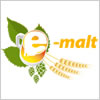
 Canada: WGRF is to invest C$12.5 million in AAFC 's wheat and barley research
Canada: WGRF is to invest C$12.5 million in AAFC 's wheat and barley research
Western Canadian wheat and barley growers will invest C$12.5 million over five years in research programs for those crops at Agriculture and Agri-Food Canada (AAFC) institutions, through the Wheat and Barley Check-off Funds, administered by Western Grains Research Foundation (WGRF), SeedQuest posted on July 5.
The funding is a renewal of a long-standing partnership between WGRF and AAFC, which has supported the development of more than 30 new wheat and barley varieties over the past 10 years. The funding will continue to focus on the development of new varieties for Western Canada with higher productivity, improved adaptation and superior consumer quality.
"This is a major step toward keeping our industry competitive," says WGRF Chair Keith Degenhardt, a Hughenden, Alta. producer. "The crop varieties produced by this investment will help Prairie farmers operate more profitably. They will be developed based on targets that address an entire agronomic package, not just quality. This will ensure we create the best tools and the right tools to support customer needs, new market opportunities and producer success."
The WGRF agreement with AAFC is structured with a five-year framework renewable for an additional five years, with approximately $2.2 million invested annually for wheat development and $300,000 annually for barley development.
AAFC research funded under the agreement includes wheat development programs for Canada Western Red Spring, Canada Western Hard White, Canada Western Amber Durum, Canada Prairie Spring-Red, Canada Western Soft White Spring and Canada Western Red Winter wheat classes. It also includes barley development programs for two-row and six-row malting barley, as well as two-row feed and food barley, including hulless and forage varieties.
"There are many examples of innovative new directions in each of these programs," says Degenhardt. "For example, hard white wheat is a new class that will help us compete in the Asian market, which prefers white wheat. Also, in hulless food barley, progress is opening the door to using this health-boosting grain to a much greater extent in a range of food products. This is happening as consumer awareness increases about barley's advantages for lowering cholesterol and reducing the risk of cancer."
More than $4 million annually is typically invested by WGRF into wheat and barley development research through the Check-off Funds, with the WGRF Board making all funding decisions. The 18-member board includes western Canadian producers representing wheat, barley, oat, flax, pulse, and canola; general farm organizations; former co-op grain handlers; Agriculture and Agri-Food Canada and the Canadian Wheat Board (CWB). Collectively, they represent the majority of Prairie crop producers.
Under previous 10-year agreements that began in 1994, the Check-off has supported breeding research at AAFC and the University of Saskatchewan's Crop Development Centre (CDC). In May, WGRF announced a renewed 10-year agreement with CDC to invest approximately $9 million.
WGRF has also supported complementary germplasm development research at the University of Manitoba, the University of Alberta and Alberta Agriculture, Food and Rural Development (AAFRD) in Lacombe.
"Our agreement with AAFC is based on the proven track record of this institution in delivering varieties that represent a high return on farmers' Check-off investment," says Lanette Kuchenski, WGRF Executive Director. "All of WGRF's new agreements were reached following an extensive process that included independent reviews, broad industry input, producer input, recommendations by the WGRF Advisory Committees and negotiations with the institutions."
With the Wheat and Barley Check-off Funds, producers have become by far the largest funding partners in public wheat and barley breeding, says Degenhardt. This research agreement will help Canada compete with key competitors such as Australia, which are investing heavily in crop development research, with a large portion driven by farmer investment.
"The Check-off investment has delivered new varieties that farmers are growing and benefiting from today," he says. "It has also sent a strong message of the importance of this research to our livelihoods as farmers and to the competitiveness of our industry in Western Canada."
Regresar
E-malt.com, la fuente de información global para los profesionales de la industria cervecera y de malteado. Los boletines quincenales de E-malt.com incluyen las últimas noticias de la industria, estadísticas en gráficos y tablas, precios mundiales de cebada y malta, y otra información relevante. Haga clic aquí para obtener acceso completo a E-malt.com. Si usted es un cliente de Castle Malting, puede obtener acceso gratuito al sitio web y publicaciones de E-malt.com. Contáctenos para obtener más información en marketing@castlemalting.com.





